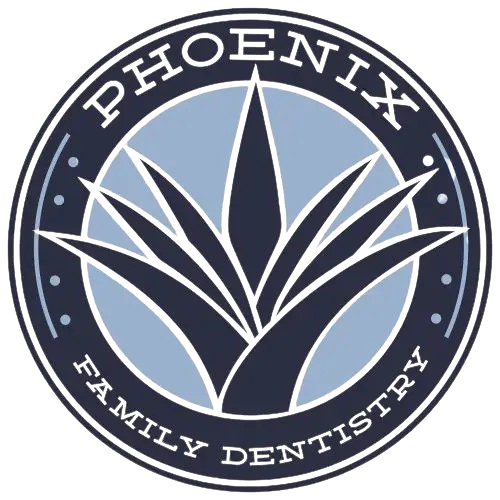Are you experiencing tooth pain or discomfort? Has your dentist recommended a tooth extraction? Don't worry, you're not alone. Tooth extractions are a common dental procedure that can help alleviate various oral health issues and restore your smile to its full potential. In this blog post, we will explore the top five reasons why tooth extraction may be necessary and provide insights into the procedure itself. So, let's dive in and discover the importance of this essential dental treatment!
Reasons for Tooth Extraction
Tooth extraction is a common dental procedure that involves the removal of a tooth from its socket in the bone. While it may sound intimidating, there are several reasons why a tooth extraction might be necessary for your oral health.
One of the most common reasons for tooth extraction is severe decay or infection. When a tooth becomes extensively decayed or infected, it can jeopardize not only your oral health but also your overall well-being. In such cases, extracting the affected tooth is often the best course of action to prevent further complications.
Another reason for tooth extraction is overcrowding. Sometimes, there simply isn't enough space in your mouth to accommodate all of your teeth properly. This can lead to misalignment and other issues with the bite functionality. By extracting one or more teeth, orthodontists can create room for proper alignment through braces or other corrective measures.
Impacted wisdom teeth also frequently require extraction. Wisdom teeth are the last molars to emerge at the back of our mouths and often don't have enough space to grow in properly. As a result, they become impacted under the gumline and can cause pain, swelling, infection, and even damage to nearby teeth if left untreated.
Periodontal disease (gum disease) can sometimes progress to an advanced stage where it affects not just gum tissue but also the underlying bone structure around our teeth. In such cases, tooth extraction may be necessary as part of comprehensive periodontal treatment plans aimed at restoring oral health and preventing further damage.
Traumatic injury or damage from accidents or sports-related incidents may necessitate tooth extraction if repair options like root canal therapy are not viable alternatives due to extensive structural damage.
Maintaining good oral hygiene practices such as regular brushing and flossing combined with routine dental check-ups will help reduce your risk factors for needing extractions!
The Procedure of Tooth Extraction
The procedure of tooth extraction is a common dental procedure performed by dentists to remove a tooth from its socket. It may sound intimidating, but in reality, it is a relatively simple and routine process.
The dentist will administer local anesthesia to numb the area around the tooth that needs to be extracted. This ensures that you won't feel any pain during the procedure. For more complex cases or if multiple teeth need to be extracted, general anesthesia might be used instead.
Once you are numb and comfortable, the dentist will use specialized instruments like forceps or elevators to gently loosen the tooth from its socket. The dentist will apply controlled pressure until the tooth becomes loose enough for removal.
In some cases where a tooth is impacted or has not fully erupted, an incision may need to be made in the gum tissue to access and extract it. After removing the tooth, stitches may be necessary to close up any incisions made during the procedure.
Aftercare instructions will be provided by your dentist following extraction. These instructions usually include avoiding strenuous activities for at least 24 hours after surgery, eating soft foods initially, and practicing good oral hygiene while being gentle around the extraction site.
Remember that every case is unique, so it's important to follow your dentist's specific recommendations for post-extraction care in order to promote healing and prevent complications.
Tooth extraction might seem daunting at first glance but with modern techniques and experienced dentists performing these procedures daily - there really isn't much reason for concern! So, if you're facing a dental issue that requires extraction, don't worry because you'll likely leave feeling relieved!
Conclusion
Tooth extraction is a common dental procedure that may be necessary for various reasons. Whether it's due to tooth decay, gum disease, overcrowding, or impacted wisdom teeth, extracting a tooth can help alleviate pain and prevent further oral health problems.
While the thought of having a tooth pulled may seem daunting, rest assured that modern dental techniques and anesthesia make the process as comfortable as possible. Your dentist will carefully evaluate your situation and determine the best course of action to ensure your oral health.
Remember, maintaining good oral hygiene habits such as regular brushing and flossing, along with routine check-ups with your dentist, can go a long way in preventing the need for tooth extraction. If you ever have concerns about your dental health or suspect you may require an extraction, don't hesitate to reach out to your dentist for professional advice and guidance.
At the end of the day, preserving our natural teeth should always be our priority. However, in certain circumstances where tooth extraction becomes necessary for overall oral health improvement or pain relief – it's essential to trust in the expertise of dental professionals who are trained to provide safe and effective treatment options.
So keep smiling brightly by taking care of your teeth while being mindful of these common reasons for tooth extraction!
Share On

General vs. Cosmetic Dentist: Which Is the Better Option
Are you experiencing tooth pain or discomfort? Has your dentist recommended a tooth extraction? Don't worry, you're not …

Ask a Cosmetic Dentist: Can Veneers Ruin Your Teeth
Are you experiencing tooth pain or discomfort? Has your dentist recommended a tooth extraction? Don't worry, you're not …

Truths and Myths From a Cosmetic Dentist
Are you experiencing tooth pain or discomfort? Has your dentist recommended a tooth extraction? Don't worry, you're not …






